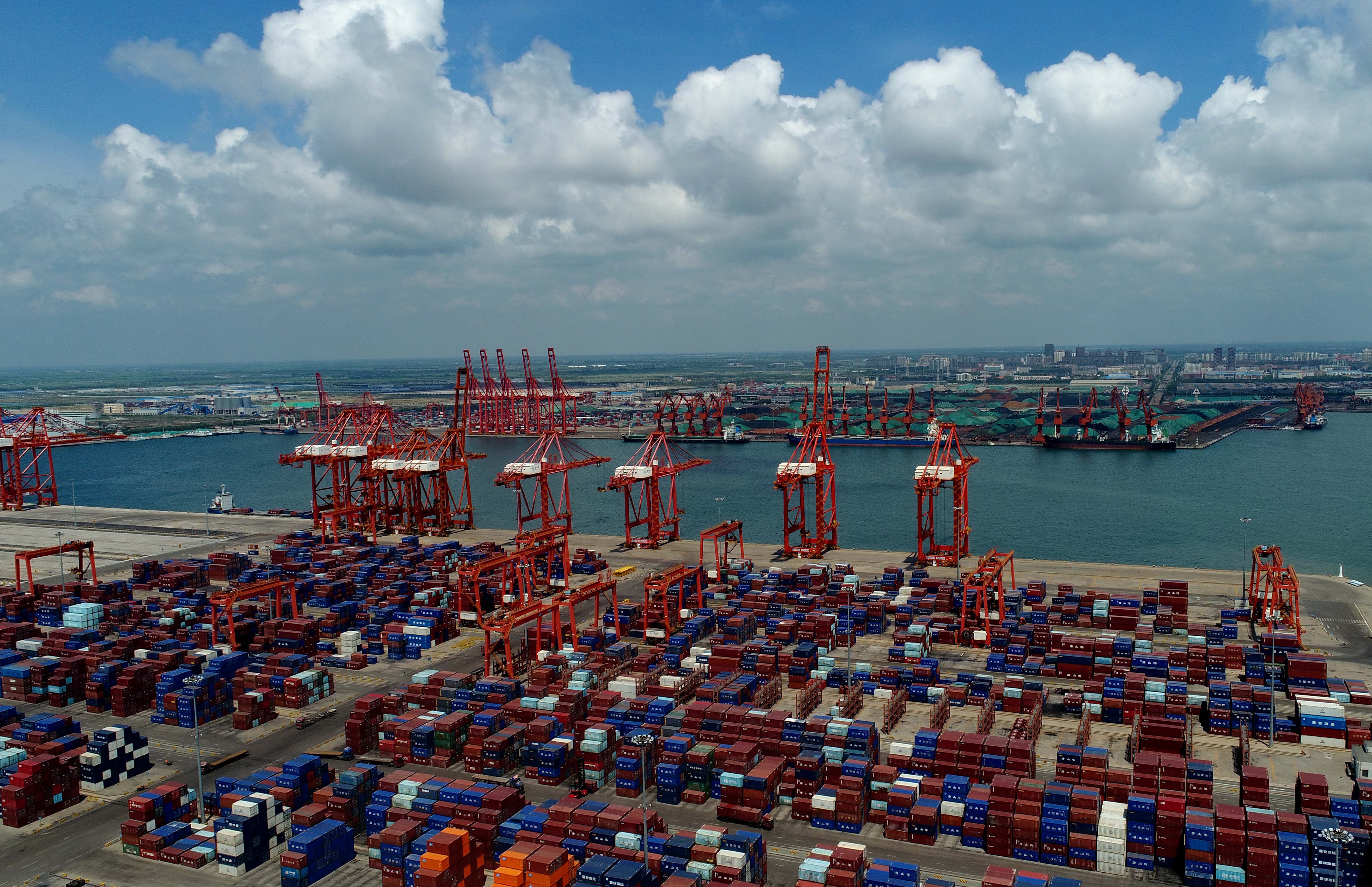
Photo taken on Nov. 1, 2018 shows a night view of Shanghai, east China. (Xinhua/Cai Yang)
There are at least four lessons the U.S. should learn from their futile trade war with China:
1. China is an unbent nail in face of U.S. tactic of maximum pressure.
2. The Chinese economy is strong and resilient enough to resist the pressure brought about in the ongoing trade war.
3. Washington's trade hardliners need to stop denying that their trade war is hurting the American people and businesses.
4. The United States should learn how to behave like a responsible global power and stop acting as a "school bully."
by Xinhua writer Jiang Li
BEIJING, Sept. 1 (Xinhua) -- Students in many parts of the world are heading back to school at this time of year for a new semester. Just like them, it is also time for trade hawks in Washington to start learning at least four lessons from their futile trade war with China.
The first lesson is that China is an unbent nail in face of U.S. tactic of maximum pressure.
On Sunday, part of the new additional tariffs imposed by the U.S. government on 300 billion U.S. dollars' worth of Chinese imports took effect, while the rest will come into force on Dec. 15.
However, Washington's ever escalating trade offensive seeking to extract unreasonable concessions from Beijing has fallen. Moreover, China's determination to fight against the U.S. economic warmongering has only grown stronger, and its countermeasures more resolute, measured and targetted. A spokesperson for China's Ministry of Commerce said on Thursday that Beijing still has sufficient measures at its disposal.

Aerial photo taken on July 10, 2019 shows a railway container freight dock at Jingtang port area of Tangshan Port, north China's Hebei Province. (Xinhua/Yang Shiyao)
The second thing those White House tariff men should learn is that the Chinese economy is strong and resilient enough to resist the pressure brought about in the ongoing trade war.
Some in the United States have recently been attempting to prod U.S. companies into finding "alternatives to China." Yet the fact is that U.S. investment in China is still on the rise. In the first half of this year, U.S. companies invested 6.8 billion dollars in China, an increase of 1.5 percent over the same period over the previous two years, according to the latest data from New York economic research firm Rongding Consulting. Among them, Tesla launched its global "super factory" in Shanghai.
One key reason for that is that China boasts the world's most populous consumer market, with more than 400 million middle-incomers.
As the only country in the world with all the industrial categories of the UN industry classification, China is able to provide a complete industrial chain and supply chain for multinational companies and reduce the cost of enterprises. This is an advantage no other country is able to provide in the foreseeable future.
At the moment, the Chinese government is seeking to step up the protection of intellectual property rights, level the playing field for overseas investors, and expand investor access to the Chinese markets. It is believed that these new reform and opening-up measures will bring more business opportunities to enterprises from around the world.

Cotton farmer Joe Boddiford walks at his farm in Sylvania, Georgia, the United States, on Aug. 1, 2019. Cotton farmer Joe Boddiford said prices for his crop recently "have best been flat and poor." He said cotton future prices in his area are around 62 to 63 cents per pound right now, compared with the pre-trade tensions level of 80-90 cents a pound. (Xinhua/Liu Jie)
The third fact Washington's trade hardliners need to stop denying is that their trade war is hurting the American people and businesses.
The latest tariffs on Chinese imports will for the first time hit products that previously have not been directly targeted, and the U.S.-initiated trade and tariff dispute is likely to directly raise prices for many household budget items such as textiles and clothing, foot wear, toys and so on.
JPMorgan researchers estimated recently that American families will be facing about 1,000 dollars in additional costs from all tariffs on Chinese goods annually after the new levies go into effect, adding that these costs could shoot up to as high as 1,500 dollars a year if Washington proceeds with its threat of further hiking the tariffs.
The ongoing trade war with China is also dampening business investment and manufacturing. The U.S. Commerce Department said on Thursday that it revised second-quarter growth of the U.S. economy to 2 percent, down from the 2.1 percent estimated last month.
Last but not the least, the United States should learn how to behave like a responsible global power and stop acting as a "school bully." As the world's only superpower, it needs to shoulder its due responsibility, and join other countries in making this world a better and more prosperous place.
Only then can America become great again.



